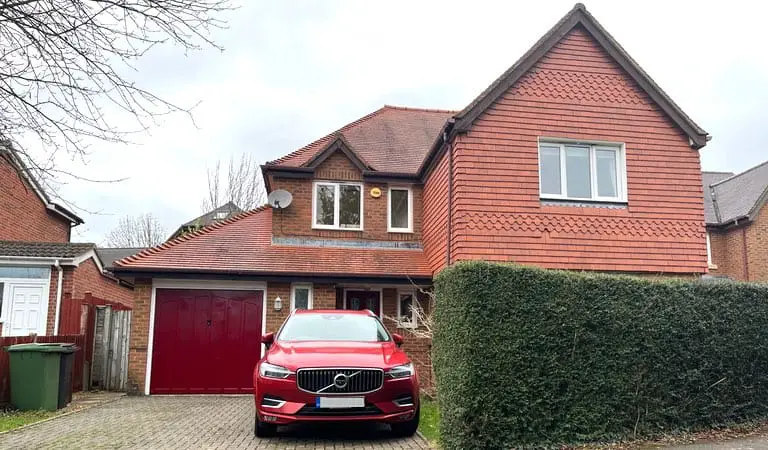Parking can be a major issue for tenants, and parking spaces can be a huge perk and a deciding factor when tenants choose between two rental properties, especially in highly built up areas. So the question is, can a landlord take away a parking spot from a tenant?
Unless there is an explicit clause in the tenancy agreement or a separate rental parking agreement, then a landlord can withhold or repossess a parking space from a tenant with legal impunity. The tenant’s only option would be to prove that a parking space was included in their tenancy agreement.
The main authority, statutory-wise, is the Landlord and Tenant Act 1985, which allows for the insertion of additional tenancy agreement clauses like a parking space assignment.
These are fairly common nowadays, especially for high rise apartments and properties in highly built up areas. If you have a designated parking space in your tenancy agreement, then as the tenant, your parking space will be secure from the start of your contract until it ends, or is renewed.
Landlords are not allowed to remove parking spots from their tenants mid contract, but they do have the right to change or modify parking conditions with prior notice if there isn’t an agreement in place at the start of their tenancy term.
Contents
- Can Tenants Be Denied Parking?
- What Can Tenants Do To Secure A Parking Space?
- What Is A Demised Parking Space?
- Can My Landlord Park In My Driveway?
- Can Tenants Expect To Pay More Rent If A Parking Spot Is Included?
- Are Landlords Responsible For Parking Issues?
- Parking Space Advice For Both Landlords And Tenants
Can Tenants Be Denied Parking?
No, landlords can’t just arbitrarily deny parking to tenants, especially if they have a parking space included in their tenancy agreement. The landlord must provide reasonable access to the parking spot and they cannot unreasonably restrict tenant parking.
The parking situation will vary from property to property and as such, tenants should take this into account when viewing potential rental properties. In high rise buildings or those in highly built up areas, parking could be a huge consideration depending on the tenants needs.
What Can Tenants Do To Secure A Parking Space?
In order to ensure that tenants secure a guaranteed parking space for the duration of their tenancy, it is important for them to take the time to read through every part of their rental agreement. Any questions or concerns should be addressed and reflected in the rental contract before signing.
If a parking space is not included in the tenancy agreement, then the tenant will not have a legal right to parking.
If there are no designated parking spaces for the tenant, then the tenant should assess whether on-street parking is viable, and if so, whether there are any restrictions during the day or if a parking permit would be required, as this will likely incur an additional cost.
Before signing any rental agreements, read through every word of the contract so there are no surprises later on.
If there isn’t an explicit clause about parking within the tenancy agreement and the landlord decides not to provide a parking space for you, then parking could potentially become a major issue.
Tenants that have parking included in their tenancy agreement are more likely to have peace of mind that they won’t ever be left without parking options.
If parking isn’t explicitly stated as part of the tenancy agreement, then the tenant may be able to negotiate with the landlord to include parking, if parking is available. It’s common for landlords to offer parking based on availability and location.
If you’re not sure whether parking is included within your tenancy agreement, then speak to your landlord or letting agent to confirm the situation and have the tenancy agreement update for clarification.
It’s always better to be safe than sorry when it comes to parking, as it could become a major issue if there isn’t any available parking spaces.
What Is A Demised Parking Space?
A demised parking space is a parking spot that has been included within the tenancy agreement, and gives the tenant exclusive possession during the length of their rental contract. In other words, no one else is permitted to be able to park in that space or have access to it.
Demised parking spaces are more common within apartment buildings, but they can also be found within high-end office buildings and retail parks.

Can My Landlord Park In My Driveway?
A landlord parking on a tenants driveway, without prior notice, is an unreasonable action and is not considered acceptable. If the tenant cannot use their driveway, then they may have to park further away from their home, which could lead to them incurring additional costs.
UK law mandates the need for tenants to live in quiet enjoyment within their rented properties. This means that tenants must not be constantly impeded by invasive landlords. In fact, landlords are not even allowed to access the properties without the tenants’ approval.
So, in the case of properties that have driveways and other parking facilities, a landlord’s attempt to use or seize parking spaces could be deemed as an unreasonable breach of their quiet enjoyment.
Of course, a landlord who parks on their tenants driveway with prior notice of them visiting, would be considered acceptable if there is enough room on the driveway whilst the tenants vehicle is in situ. If not, the landlord should park elsewhere for the duration of the visit.
Tenants who experience issues with their landlords parking on their driveway without prior notice, should first speak to their landlord and remind them that access to the driveway is a right and not a privilege.
If parking continues to be an issue, then the tenant can escalate their complaint to their local council or tenancy association for further clarification on how they should proceed with this matter.
Can Tenants Expect To Pay More Rent If A Parking Spot Is Included?
This will depend on the location of the property. In rural areas, it is unlikely that the rent will reflect that parking is available, but in major cities there is a chance that a property with parking will command a higher rent than a property without.
Are Landlords Responsible For Parking Issues?
Landlords are not responsible for parking issues. If parking is included within the tenancy agreement, the tenant its responsible for dealing directly with any problems that may arise. If parking isn’t included as part of the rental contract, landlords won’t be liable to provide parking options.
If parking becomes an issue for a tenant, then of course, there is no harm in seeking advice from the letting agent or landlord. But the level of support they receive will be determined by the terms and conditions of the rental agreement.
It’s important for both landlords and tenants to be aware of parking arrangements before signing any rental agreements, as parking can quickly become a source of tension and conflict if not handled correctly. By knowing your rights and responsibilities, both parties can avoid any potential disputes.
Parking Space Advice For Both Landlords And Tenants
Depending on the location of the property, and the potential commuting needs of the tenant, parking can be a concern if the property doesn’t have a garage or off-road parking. Landlords and tenants should investigate alternative parking options before committing to buy or signing a rental agreement.
When viewing the property, take the time to look at the other cars parked on the street. If they appear valuable, and their owners seem happy to park them there, then that should give potential landlords and tenants confidence to park their car there too!
If parking appears to be too restricted, or if the quality of vehicles parked are below average (or on bricks), then it would be worth considering alternative properties if parking is high on your list of priorities.

